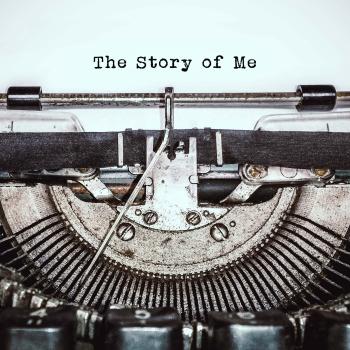Students read and discuss literature about intolerance and diversity. They work with a partner to write two-voice poems that illustrate situations of intolerance at their school and suggest a step toward acceptance.

Moving Toward Acceptance Through Picture Books and Two-Voice Texts

Grades
|
Young Adult Literature about the Middle East: A Cultural Response Perspective
6 - 8
Lesson Plan
| Standard Lesson
Adapted from Sheryl L. Finkle and Tamara J. Lilly's Middle Ground: Exploring Selected Literature from and about the Middle East, this variation on traditional literature circles exposes students to a variety of young adult fiction from and about the Middle East. Students read and share research and responses in collaborative groups. At the end of the lesson, they write a letter to welcome an immigrant student to their school and community.

Grades
|
Modeling Academic Writing Through Scholarly Article Presentations
9 - 12
Lesson Plan
| Unit
Students prepare an already published scholarly article for presentation, with an emphasis on identification of the author's thesis and argument structure.

Grades
|
Teaching Student Annotation: Constructing Meaning Through Connections
9 - 12
Lesson Plan
| Standard Lesson
Students examine text closely and create annotations to make personal and meaningful connections with the work.

Grades
|
Swish! Pow! Whack! Teaching Onomatopoeia Through Sports Poetry
6 - 8
Lesson Plan
| Standard Lesson
Students explore poetry about sports, looking closely at the use of onomatopoeia. After viewing a segment of a sporting event, students create their own onomatopoeic sports poems.

Grades
|
Tracking the Ways Writers Develop Heroes and Villains
9 - 12
Lesson Plan
| Unit
Everyone knows that Star Wars character Darth Vader is a villain. This lesson asks students to explore how they know such things about heroes and villains they encounter in texts.

Grades
|
And I Quote: A Punctuation Proofreading Minilesson
9 - 12
Lesson Plan
| Minilesson
Students review the basic conventions for using quotations from literature or references from a research project, focusing on accurate punctuation and page layout, then apply the conventions to their texts.

Grades
|
Constructing New Understanding Through Choral Readings of Shakespeare
9 - 12
Lesson Plan
| Standard Lesson
After reading The Tempest or any other play by William Shakespeare, students work in small groups to plan, compose, and perform a choral reading based on a character or theme.

Grades
|
All's Well that Sells Well: A Creative Introduction to Shakespeare
9 - 12
Lesson Plan
| Standard Lesson
Students compare attending a performance at The Globe Theater with attending a modern theater production or movie. They then create a commercial for an Elizabethan audience promoting a modern product.

Grades
|
The Ten-Minute Play: Encouraging Original Response to Challenging Texts
9 - 12
Lesson Plan
| Unit
Students use both analytical and creative skills to adapt passages from a novel with significant internal dialogue and conflict, such as Toni Morrison's Beloved, into a ten-minute play.

Grades
|
Weekly Writer's Blogs: Building a Reflective Community of Support
9 - 12
Lesson Plan
| Recurring Lesson
Students explore the conventions of blog writing while using it to self-reflect on their writing and communicate with classmates about each other's reflections.

Grades
|
Persuading Readers with Endorsement Letters
9 - 12
Lesson Plan
| Standard Lesson
Students explore the genre of commercial endorsements, establishing characteristics and requirements for the genre. Each student then composes an endorsement of a product, service, company, or industry.

Grades
|
Help Wanted: Writing Professional Resumes
9 - 12
Lesson Plan
| Unit
Students will create a beginning resume that represents their current work experience and demonstrates their knowledge of rhetorical situations for professional writing.

Grades
|
The Importance of Titles: From Big Blank Space to Small Good Thing
9 - 12
Lesson Plan
| Standard Lesson
After examining two sets of stories that author Raymond Carver renamed in revision, students write a reflective essay in which they defend their choice of a title for one them.

Grades
|
Rummaging for Fiction: Using Found Photographs and Notes to Spark Story Ideas
9 - 12
Lesson Plan
| Standard Lesson
In this lesson, students use found notes and found photographs as inspiration to help them identify subjects, settings, characters, and conflicts for pieces of creative writing.

Grades
|
Color of Silence: Sensory Imagery in Pat Mora's Poem "Echoes"
6 - 8
Lesson Plan
| Standard Lesson
Pat Mora's poem "Echoes" demonstrates that our senses are powerful tools for literary analysis and comprehension as students use their senses to discover new ways to read and write.

Grades
|
Having My Say: A Multigenre Autobiography Project
9 - 12
Lesson Plan
| Unit
Students compose a multigenre paper, modeled after the Delany sister's autobiography, Having Our Say, that includes the autobiographical narrative essay as well as an informational nonfiction piece.

Grades
|
Writing Technical Instructions
9 - 12
Lesson Plan
| Standard Lesson
Students walk through the process of creating technical instructions by analyzing existing instructions, choosing an audience, writing their own instructions, receiving user feedback, and then revising and publishing their instructions.

Grades
|
Book Report Alternative: Creating a New Book Cover
3 - 5
Lesson Plan
| Standard Lesson
Students explore book covers of a variety of books then create a new cover for a book they have read.

Grades
|
Once Upon a Fairy Tale: Teaching Revision as a Concept
6 - 8
Lesson Plan
| Standard Lesson
Students use fractured fairy tales to practice revision and editing as separate activities when they write their own versions of fairy tales.